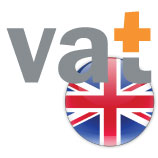UK government guidance for new tax avoidance penalty law
 Last month the UK government released guidance involving the new legislation that will introduce penalties for enablers of defeated tax avoidance arrangements.
Last month the UK government released guidance involving the new legislation that will introduce penalties for enablers of defeated tax avoidance arrangements.
The Finance Bill (No. 2) 2017 legislation – presents a penalty for any person/s who enable the use of abusive tax arrangements that are later defeated.
The UK government said the guidance explains the key concepts included in this legislation and also explains to whom the legislation is intended to apply and how.
When discussing the purpose of the penalties, ‘an enabler’ is considered any person/s who is/are responsible, to any extent, for the design or marketing of an abusive tax arrangement or enabling a person to enter into one. When such arrangements are defeated in a court or at a tribunal, or are otherwise counteracted. Each person who assisted the arrangement may be liable to a penalty, equal to the amount of consideration either received or receivable by them for enabling those arrangements.
To make sure that these powers are not too generally used, HM Revenue and Customs (HMRC) must gain an opinion from the general anti-avoidance rule (GARR) advisory panel in relation to the tax arrangements, and a taxpayer is allowed to submit an appeal against a penalty.
In relation to the guidance, the legislation gives HMRC the power to tackle all characteristics of the marketed avoidance supply chains, complementing the suite of anti-avoidance measures already in place. It is anticipated that the legislation should influence and stimulate behavioural change in the minority of tax agents, intermediaries, and others who benefit financially from designing, marketing, or facilitating the use of abusive tax arrangements that are defeated. In the meantime, those who provide clients with services in respect of genuine commercial arrangements will not be impacted.
This ‘enablers’ legislation applies to a person only if they enable abusive tax arrangements that are entered into on or after the date of Royal Assent to the Finance No.2) Act 2017 (anticipated in December 2017). The enabling activity must also have been undertaken on or after this date.
The guidance debates how the penalties fit into the current UK framework to discourage aggressive tax avoidance and provides examples of situations where penalties would be appropriate.
amavat® provides a one-stop-shop solution for VAT Compliance within Europe. We assist clients with a single point of contact that speaks their language and handles all VAT related issues with a standard and cost efficient approach.
If you have any queries or questions, please do not hesitate to contact amavat®.
To find out more information please visit amavat.eu













